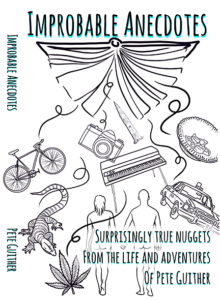Baptist pastors in Ohio launched their own private drug war in a deliberate breach of the separation of church and state:
“We support vibrant communities and encourage policymakers to “Believe Local,”Mansfield Pastor Joe Nichols said during the press conference. “Therefore, based on local community standards reflected in its history and leadership, and as clergymen representing one hundred and ten (110) congregations across North Central Ohio, we believe the legalization of recreational marijuana and the relaxation of drug enforcement laws like syringe exchange programs and designated outdoor refreshment areas disrupt health and safety and are morally wrong.” …During the briefing, Pastor Chad Hayes sounded the alarm on the substance abuse crisis. Hayes leads a faith-based RU Recovery drug treatment ministry to battle drug addiction. […]
Believing is one thing. Acting on it is another. Religious groups that assume the role of government risk being seriously disliked just as if they were actual bureaucrats or politicians. Preventing people from obtaining the optimal medicines they need as an effective addition to addiction or pain treatments, cancer treatments, or as an anxiolytic and anti-depressant, can lead to open revolt. Marijuana and psilocybin decriminalization/legalization has been a revolt of sorts. Thomas Jefferson would have approved, “I hold it that a little rebellion now and then is a good thing, and as necessary in the political world as storms in the physical.”
Anthea Butler’s book, White Evangelical Racism: The Politics of Morality in America, presents the moral dilemma of legislating morality when it’s based on racist or xenophobic intent. When facing questions of moral right or wrong, a person’s mind isn’t always changed by the passage or enforcement of laws. Legislators know this. In practice, evangelical lawmakers make detrimental use of divisive moral problems to generate scofflaws who can be singled out for crossing moral lines drawn in a shifting sand.
Numerous Ohio evangelicals are using marijuana prohibition to make a distinction between themselves and other groups for the purpose of defamation, domination, exploitation, or elimination of the other. Nothing about this is new. In biblical times, a symbol or indicator of the other was called a shibboleth. Within the dark and secretive confines of the Holy Office of the Inquisition, it was referred to as an indicium. Heresy in ancient societies was as simple as exhibiting the wrong accent when some unfortunate outlier was forced to say the word shibboleth. Identified members of outlying groups or tribes, or those who suffered a speech impediment such as a lisp, would then be summarily put to death.
Fortunately, hashish was still legal in the 4th century as it had been for thousands of years previously. Its joyful use made early Christianity much more tolerable and less a social and political pain than it is today.




